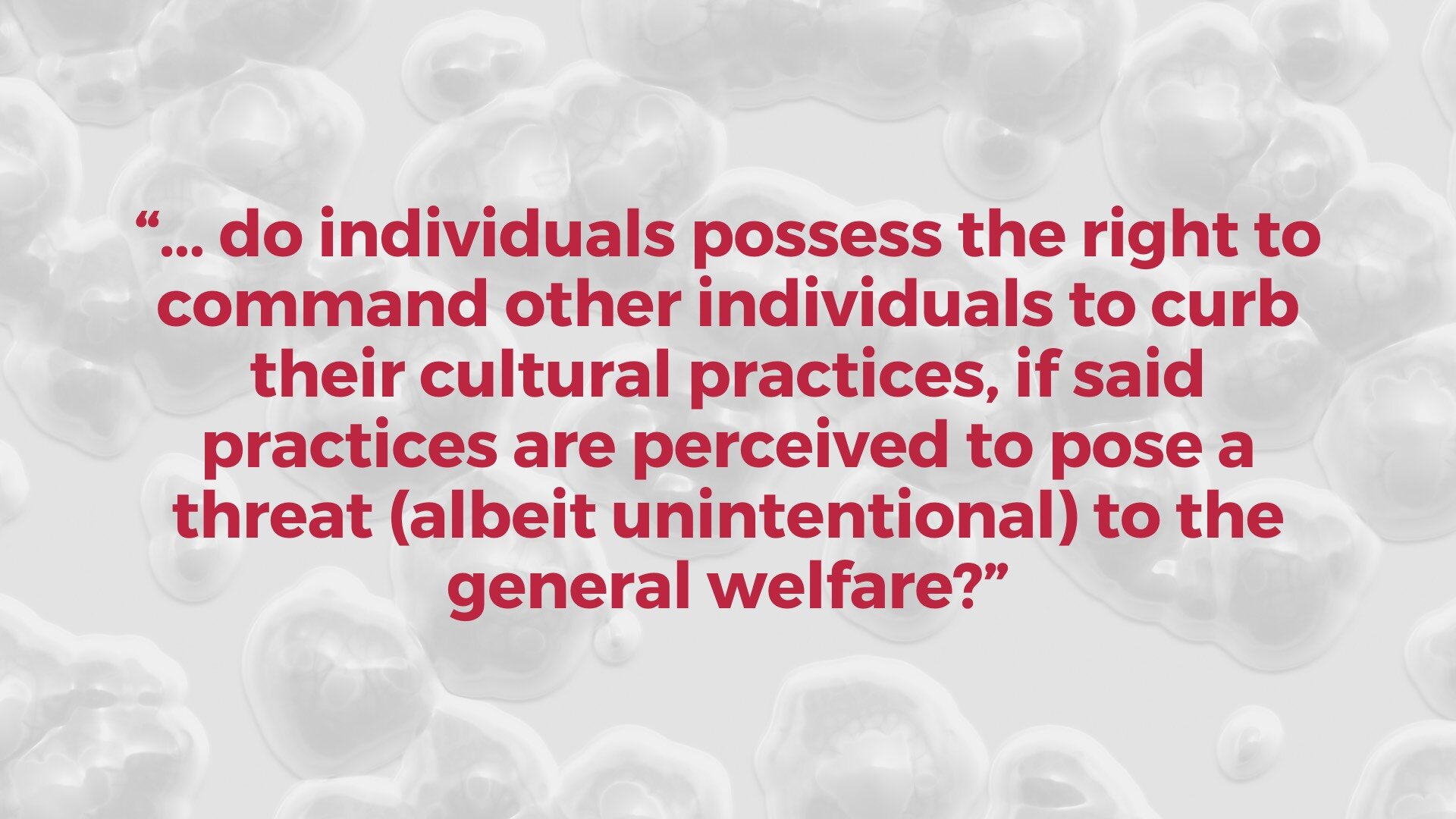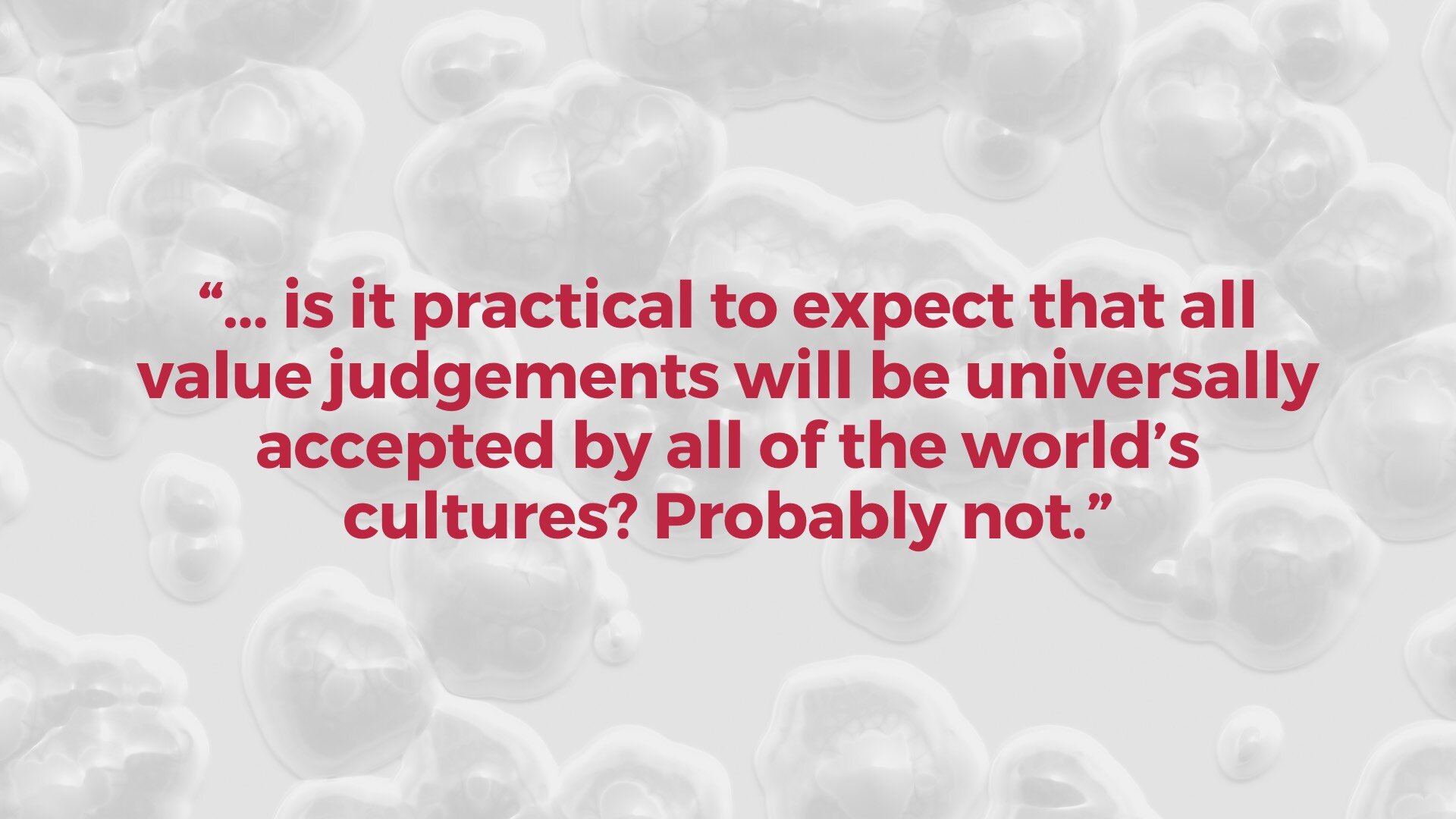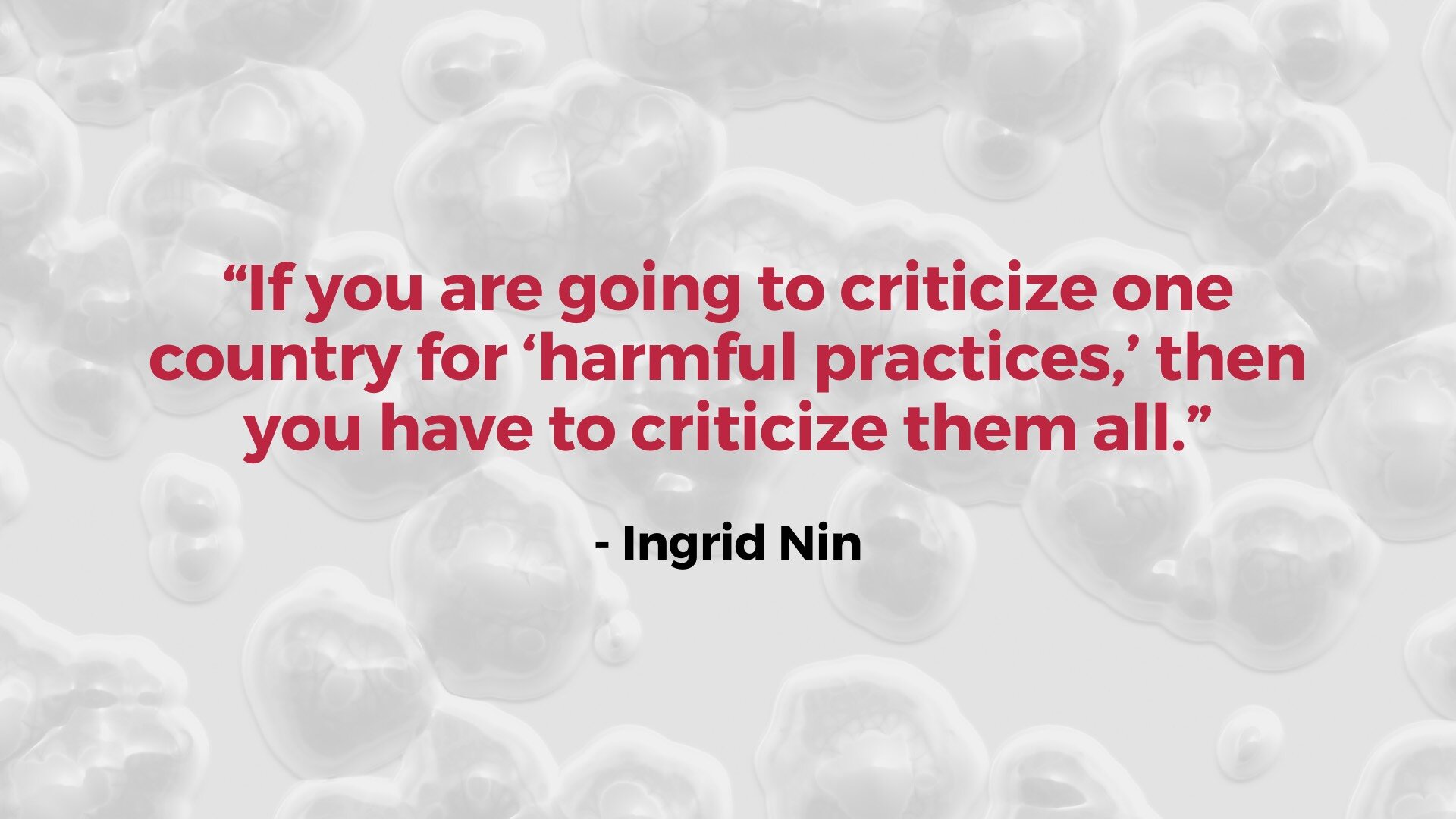Coronavirus in the Face of Cultural Relativism
Words and graphics by Eric Bilach
We all belong to a distinct set of cultures, communities, and other social groups. Whether they are rooted in a particular nationality, ethnicity, or religion, our cultural upbringings shape our behavioral norms, as well as have a massive influence over our day-to-day dealings with the surrounding world. From the clothes we wear to the music we play to the food we consume; our habits are reflective of our individual cultural makeup. We often celebrate the expressive forms that constitute our respective cultures and that allows us to identify with unique and extraordinary subsets of the human population. Bearing all of this in mind; however, do any of us ever stop to contemplate the effects our cultural practices may have on other portions of the world?
Before delving into the nuances of this question, let us first consider the recent coronavirus outbreak. Coronavirus disease 2019 (or COVID-19 for short) is an acute respiratory infection that has ravaged the Asian continent, in addition to other isolated locations across the globe. At last count (February 25, 16:15 GMT), there have been 80,377 confirmed cases of COVID-19 since its emergence in late December, resulting in 2,707 deaths. Although governments and health officials have been moderately successful in containing the outbreak within Asian borders—namely China, the source of the disease, as well as South Korea and Japan—the risk COVID-19 poses to the global population extends far beyond that of mere infection.

A recent New York Times article written by Neil Irwin describes the threat of economic fallout that COVID-19’s rapid transmission to other continents poses to the global community:
The longer the shutdowns of Chinese production, and the more widely other countries are forced to take similar measures, the more the spread of the virus could affect the ability of global companies to do business… The economic effects of coronavirus would act as a “supply shock,” reducing the productive potential of affected nations for reasons unrelated to the forces that more traditionally shape economic results like monetary policy or fiscal policy.[1]
In addition to mounting infection and death rates, the COVID-19 epidemic has effectively disrupted global supply chains, as well as the daily operations of the businesses involved in the production and distribution of both common and luxury goods. The effect that this curtailment of production may have on the world economy could potentially reach astronomical heights. In a February CNN Business report, authors Julia Horowitz and Charles Riley noted, “According to a study by the World Bank, a severe pandemic could cause economic losses equal to nearly 5% of global GDP, or more than $3 trillion.”[2]
The gravity of theseissues and more, as related to COVID-19, were discussed late last month in asegment on Tucker Carlson Tonight. The eponymous host and Dr. MarcSiegel conversed about the origin of COVID-19, as well as possible travelrestrictions to China and the implications the disease may impose on variousaspects of human life around the globe, particularly the United States. Thethird talking point brings us to the question posited earlier about the widespreadeffects of our individual cultural practices, in addition to the topic ofcultural relativism.

Dr. Siegel explained that, at the time of his appearance on Carlson’s talk show, COVID-19 was speculated to have an animal origin. It was hypothesized by scientists and health experts that the disease was transmitted from non-human animals to humans (via a process called “zoonotic” transmission) at a live animal and seafood market in Wuhan, Hubei Province, China, sometime in December 2019. Claims have since been made regarding the human consumption of exotic animals—including beavers, snakes, and porcupines—in this Chinese province (which would corroborate the zoonosis theory). On this subject, as per a January Time article written by Charlie Campbell, it is known that “[e]ating wild animals is [sic] considered a luxury [in the Hubei Province] because of their rarity and cost, much like game is in the West.”[3] Some have linked this dietary habit—eating exotic animals either raw or undercooked—to the spread of COVID-19 from animals to humans.
At the end of his interview with Dr. Siegel, Carlson—in reference to the proposed zoonotic theory above—asked the following rhetorical question to his viewers: “Why shouldn’t we say something about that?”[4] Regardless of one’s perspective on Carlson as a political commentator or if the speculation concerning COVID-19’s origin and transmission to humans is categorically true or not (which, let it be known, this article does not, by any means, assert), Carlson’s inquiry here is quite compelling. To broaden the scope of his question: do individuals possess the right to command other individuals to curb their cultural practices if said practices are perceived to pose a threat (albeit unintentional) to the general welfare?
This question is difficult to answer in both legal and moral terms. However, for the sake of this article, we will only be concerned with the latter.
Cultural relativism is the anthropological idea that an individual’s culture should only be evaluated against the criteria of that individual’s own culture, rather than against that of another. Opinions over this idea have historically been divided, most notably in terms of its application to the concepts of human rights and free will. While it is broadly recognized that humans are autonomous beings free to engage in whichever practices, and belief and value systems they wish, the subject of cultural relativism becomes murky when these customs bear negative consequences for other individuals. In line with the platitude “what may be good for one may not be good for another,” is it practical to expect that all value judgments will be universally accepted by all of the world’s cultures? Probably not.
In speaking with independent filmmaker and City College student Ingrid Nin, she managed to shed some light on this discussion, particularly how it relates to COVID-19, as well as the dietary habits of the Hubei Province. Her 2019 documentary What Floats Around Us captures the extent in which water pollution has diminished ecosystems within New York City. These findings have provided her with the basis to her comments on cultural relativism:
I view the consumption of those animals as a cultural staple of [the Hubei province]. No country should have the right to tell another what they should and should not be doing, as if morals can be objective or unbiased. That said, maybe other countries can encourage the Chinese government to conduct more health inspections of particular markets (such as the one in Wuhan) and educate their citizens about the risks of eating certain animals and maintaining them in unkempt areas. However, having outside countries try to regulate another’s cultural practices would, in my opinion, set a dangerous precedent.
Nin continued:
The immediate focus right now is on [COVID-19], but most countries are guilty of causing harm to the [global community] in one way or another. Take the subject of my documentary for example. Pollution in the United States—whether it be water, air, or soil—can be traced to our cultural values. We mine and burn coal to power manufacturing factories, emitting sulfur and carbon dioxide in the process. We improperly dispose of plastic, which makes its way into rivers, lakes, and oceans, endangering wildlife and the quality of the water… The list goes on. Other countries are responsible for similar offenses. If you are going to criticize one country for “harmful practices,” then you have to criticize them all.

If we accept the premise that it is nearly impossible for all of the world’s cultures to unanimously agree on a particular value judgment, then Nin’s comments hold substantial weight. The imposition of one society’s values on the actions of another may very well constitute an act of cultural imperialization. If history is any indicator, then we, as a human collective, may want to avoid cultural takeovers in the vein of Ancient Greece, the British and Roman empires, and Nazi Germany, amongst others, for obvious reasons.
Nin’s call for“education” is perhaps the most appropriate course of action with regards tohandling the COVID-19 situation. It will permit the people of the HubeiProvince to preserve their unique and extraordinary identity, spirit, andculture, while simultaneously ensuring the health and well-being of the globalcommunity—or, in other words, the best of both worlds.
[1] Irwin, Neil. “Wall Street Is (Finally) Waking Up to the Damage Coronavirus Could Do.” The New York Times. February 25, 2020.
[2] Horowitz, Julia, and Charles Riley. “The coronavirus is already hurting the world economy. Here’s why it could get scary.” CNN Business. February 10, 2020.
[3] Campbell, Charlie. “The West Blames the Wuhan Coronavirus on China’s Love of Eating Wild Animals. The Truth Complex.” Time. January 24, 2020.
[4] Tucker Carlson Tonight. Washington, D.C.: Fox News, January 24, 2020.




